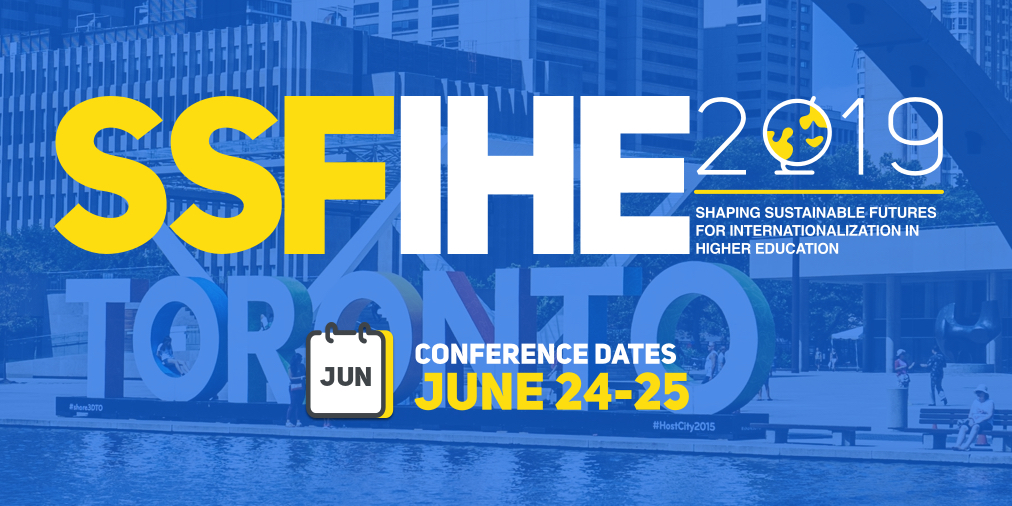Nadiia Kachynska and Clara Kim

As a truly global phenomenon, the internationalization of higher education relates to highly debatable topics among researchers, policymakers and practitioners. Since early studies on internationalization in 1990s, it has developed as a major theme within the interdisciplinary field of higher education research, and more recently critical studies and counter-visions of internationalization have emerged. In an introductory article for a special issue of Wiley’s Higher Education Quarterly 2018, Ka Ho Mok from Lingnan University, Hong Kong, calls to think about the question, “Does internationalization of higher education still matter?”. When he provides an excellent evidence on who wins and who loses in the process within the Asian context, it is important to consider different perspectives.
The topic of internationalization goes beyond scholarly frameworks. Governments around the globe have developed international education strategies, devised policies on recruiting and retaining international students and scholars, allocated budgets to promote national higher education worldwide. Practitioners at higher education institutions serve at the frontline of internationalization making it a reality.
What lies ahead for internationalization?
How to bring different perspectives together in rethinking the futures of internationalization in higher education is the reason why we – a group of doctoral researchersbased at the University of Toronto in Canada but with research interests, professional experience and personal backgrounds across the globe – have decided to organize a conference on this topic.
The conference is called Shaping Sustainable Futures for Internationalization in Higher Education. Co-hosted by Humber College and the Centre for the Study of Canadian & International Higher Education, it will be held at the University of Toronto on June 24 and 25, 2019. As the name suggests, the conference will focus on what lies ahead for internationalization. It will bring together student and faculty researchers, policymakers and practitioners to discuss, debate and deliberate the possible range of futures for internationalization over two action packed days.
We are pleased to announce our three fantastic keynote speakers – Dr Jane Knight, perhaps the best-known figure in the field of higher education internationalization, Professor Ka Ho Mok, Vice-President and Professor Comparative Policy at Lingnan University, Hong Kong, and Professor Chika Trevor Sehooleis the Dean of the Faculty of Education at the University of Pretoria. From emerging theories in the study of internationalization within the field of higher education to insights on the future directions of internationalization through a comparative and global lens in both practice and policy, our keynote speakers will speak to the core objective of this conference. At the nexus of sustainable futures of quality, reciprocity, and inclusivity, of internationalization is the coming together in dialogue and collaboration.
Quality, reciprocity and inclusivity
We received proposals from students, faculty, practitioners, and policymakers hailing from across 25 countries. Through a double-blind peer-review process, about 70 excellent proposals were selected to participate in the conference. Integral aspects of the review process were to ensure alignment with our three conference themes – quality, reciprocity and inclusivity – and to provide a wide array of important approaches and lenses to the discussion of internationalization.
As the preliminary program has it, the conference will run in six parallel sessions for two days, and presentations will be grouped around six topics: internationalization in practice; indigenization and rebalancing power; new frameworks and approaches; institutional, national and regional responses; policy implications; and global intersections. The formats of presentations are very varied to better represent our diverse participants and to make a proper space for their perspectives to be heard. The presentations encourage interactions between researchers, policymakers and practitioners in the formats of round tables, workshops, fireside chats, paper panels, white paper sessions. We also hope to widen the impact of the conference beyond two days and to produce, for example, an edited book and journal special issue, and to make recorded workshops available online.
Developing collaborations and connections
As graduate students ourselves, we were mindful that participation in international conferences can be very costly, and it was very important to us that we mitigate this concern as much as possible as we did not want the discussions and our shared learning opportunities to be limited by this barrier. As such, we as an organizing team actively sought out opportunities and sponsorships that would allow us to raise funds to provide as much financial support to our presenters as possible. With the generous support of our wonderful sponsors, we were able to offer 32 travel grants to graduate students and early career researchers. This is an appropriate moment to say a huge thank you to our sponsorswho have made not only the grants possible, but have given us free advertising, created our brilliant communication campaign and will ensure that everyone who comes to the conference comes away with food for thought, good company, and good eats!
Please join us on June 24 and June 25, 2019 to come together as stakeholders and invested parties in shaping sustainable futures of internationalization in higher education. We see this conference as the beginning exchanges of dynamic ideas that will continue to develop through collaborations and connections. You can find the registration link at our website.
Stay tuned for more exciting details as our conference unfolds at our websiteor on Twitter @SSFIHE2019!
Nadiia Kachynska and Clara Kim are PhD researchers at the Ontario Institute for Studies in Education (OISE), University of Toronto (Canada) and are members of the organizing committeeof this conference.
This blog post was initially published on Europe of Knowledgeblog.

